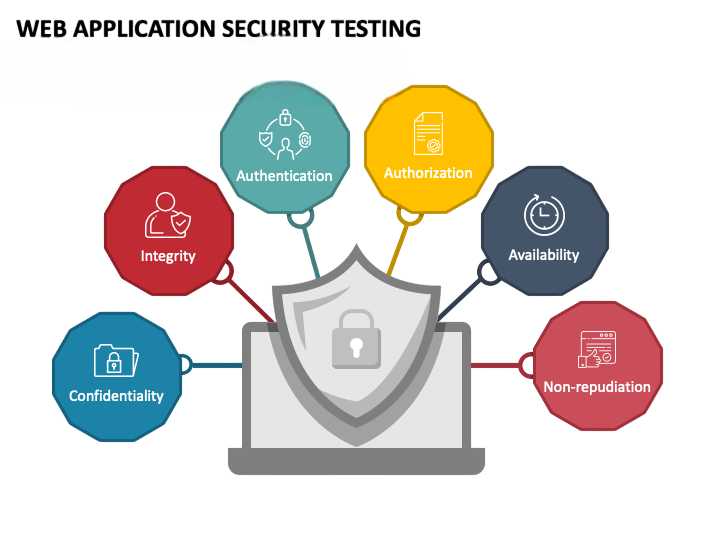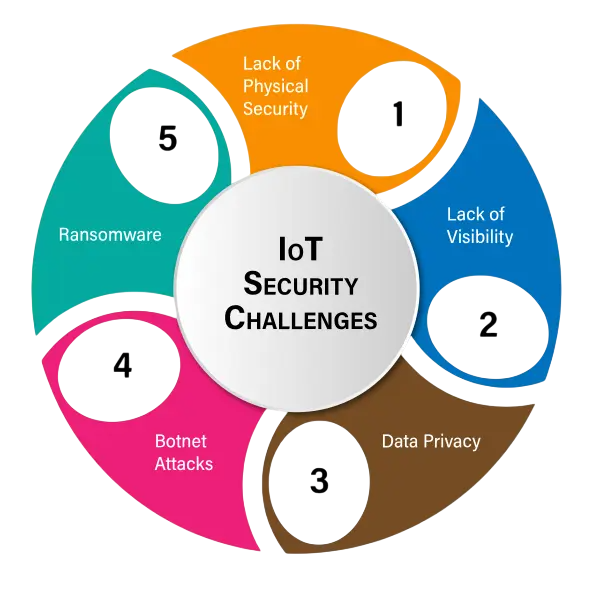
- Why Cybersecurity Skills Matter Today
- Importance of Hands-on Projects
- Network Security Projects
- Web Application Security Projects
- Cryptography Projects
- Malware Analysis Projects
- Cloud Security Projects
- IoT Security Projects
- Blockchain & Security Projects
- AI/ML in Cyber Security Projects
- Student-Level Projects
- Conclusion
Why Cybersecurity Skills Matter Today
Cybersecurity has become one of the most essential domains in the digital age as the reliance on technology continues to grow. Every sector, including banking, healthcare, government, education, and e-commerce, depends on secure digital systems to protect sensitive data and ensure smooth operations. With increasing cyber threats, the demand for cybersecurity professionals is higher than ever, making Cyber security training essential for aspiring experts. One of the most effective ways to develop practical skills in this field is by working on hands-on projects. Projects provide real-world exposure, test problem-solving abilities, and help individuals apply theoretical concepts. They also play a vital role in job readiness, as recruiters often value practical experience over academic knowledge. This guide explores different categories of cybersecurity project ideas, ranging from beginner-friendly tasks to advanced real-world projects. These projects are suitable for students, aspiring ethical hackers, and professionals looking to strengthen their portfolios.
To become a certified cyber security, have a look at our Cyber Security Online Training right now.
Importance of Hands-on Projects
While cybersecurity concepts can be studied theoretically, real expertise comes from applying knowledge to real-world scenarios. Hands-on projects allow learners to:
- Understand real attack vectors – Projects simulate how cyberattacks work, enabling students to analyze vulnerabilities and threats.
- Develop practical defense mechanisms – Instead of just learning definitions, projects require building tools or applying strategies for mitigation, which is essential for understanding What is Cyber Forensics .
- Enhance employability – Employers prefer candidates who have completed cybersecurity projects as it demonstrates applied skills.
- Gain problem-solving skills – Each project presents unique challenges that improve analytical and technical capabilities.
- Stay industry-ready – Working with real tools like Wireshark, Nmap, Burp Suite, and Metasploit bridges the gap between classroom learning and industry demands.
Thus, practical projects are not only crucial for academic purposes but also for professional growth in the cybersecurity domain.
Network Security Projects
Network security forms the foundation of cybersecurity, as all digital communication depends on secure networks. Some interesting project ideas in this domain include:
- Firewall Implementation – Design and configure a basic firewall using iptables or pfSense to filter traffic and block unauthorized access.
- Intrusion Detection System (IDS) – Develop an IDS that monitors suspicious activities in a network using Snort or Suricata.
- Packet Sniffing and Analysis – Use Wireshark to analyze live network traffic, detect anomalies, identify malicious packets, and understand the techniques used by Hackers And Crackers .
- VPN Setup and Testing – Configure a Virtual Private Network (VPN) and study how it secures communication.
- Port Scanning and Vulnerability Detection – Implement a project that uses tools like Nmap to scan open ports and identify weak points.
Network security projects are highly valuable since most organizations rely on network monitoring and defense against intrusions.
Web Application Security Projects
Since most cyberattacks target web applications, web application security is a crucial component of cybersecurity. Students and amateurs can obtain practical experience in this field through a number of projects. For instance, learners can comprehend the attack process and apply defences like parameterized queries by simulating SQL injection assaults using a vulnerable web application. Preventing such vulnerabilities can also be achieved by creating examples of Cross-Site Scripting (XSS) attacks and then creating secure coding solutions.

Creating a password strength analyser that instructs users on how to create secure, strong passwords is another helpful initiative in Cybersecurity Project Ideas . In order to demonstrate how encryption safeguards online transactions, students might also construct a secure online payment simulation. Furthermore, creating a web application vulnerability scanner that can identify common problems like SQL injection, CSRF, and XSS provides useful insight into actual security testing. These projects are very helpful for students interested in web development and ethical hacking, in addition to simulating real vulnerabilities.
Cryptography Projects
Cryptography is the science of securing communication through encryption and hashing. It plays a key role in data protection. Some cryptography project ideas include:
- Caesar Cipher Implementation – A beginner project where students can design simple encryption algorithms and learn substitution methods.
- AES Encryption Tool – “Build a tool that encrypts and decrypts sensitive files using the Advanced Encryption Standard to understand What is Ransomware Attack .
- RSA Algorithm Implementation – Develop a project that demonstrates public-key encryption for secure communication.
- Password Hashing System – Create a secure password manager using hashing algorithms like SHA-256 with salting.
- Blockchain-based Secure Messaging – Implement a simple blockchain ledger that enables secure, tamper-proof messaging.
Cryptography projects are crucial in learning how modern security mechanisms safeguard data.
Are you curious to know more about Cybersecurity ? Take advantage of our comprehensive online Cyber Security Online Training
Malware Analysis Projects
Malware remains one of the most dangerous cyber threats, and malware analysis is an essential skill for cybersecurity professionals. Some malware-related projects include:
- Keylogger Detection Tool – Build a system that detects suspicious keylogging activities on a computer.
- Sandbox for Malware Testing – Create a virtualized environment where malware can be executed and analyzed safely as part of Cyber security training .
- Virus Signature Database – Develop a small antivirus engine that scans files for known malware signatures.
- Ransomware Simulation – Demonstrate how ransomware encrypts files and then create methods for prevention.
- Memory Forensics – Use tools like Volatility to analyze system memory and detect hidden malware.
These projects provide valuable insights into how malicious software operates and how security analysts can mitigate such threats.
Transform Your Career with Cyber Security Knowledge Enroll in ACTE’s Cyber Security Expert Masters Program Training Course Today!
Cloud Security Projects
Cloud security is becoming one of the most significant and evolving topics of cybersecurity due to the quick uptake of cloud computing. Students can obtain practical experience in this sector through a number of initiatives. For example, creating a Cloud Access Security Broker (CASB) simulation enables students to efficiently enforce restrictions and keep an eye on cloud usage. Another worthwhile effort is implementing data encryption for cloud storage, which encrypts files sent to the cloud before being stored to guarantee data security as part of an Open Web Application Security Project . In order to safely manage user rights, students can also concentrate on setting up Identity and Access Management (IAM) policies in platforms like AWS or Azure. Potential hazards in shared infrastructures can be understood by examining vulnerabilities in multi-tenant cloud setups and suggesting fixes. Furthermore, developing a cloud incident response system aids in understanding and simulating the procedure for handling cyber incidents on cloud platforms. In addition to improving students’ practical abilities, these projects aid in their understanding of the shared responsibility paradigm and the significance of cloud application security.
IoT Security Projects
The Internet of Things (IoT) brings new cybersecurity challenges due to billions of connected devices. Some project ideas are:

- IoT Device Honeypot – Create a honeypot that simulates vulnerable IoT devices to attract attackers and study their techniques using Ethical Hacking Footprinting .
- Smart Home Security System – Design a security system for IoT-based smart homes that prevents unauthorized access.
- IoT Botnet Simulation – Demonstrate how IoT devices can be hijacked to form botnets for DDoS attacks.
- Secure Communication for IoT Devices – Implement a lightweight encryption protocol suitable for IoT devices.
- IoT Vulnerability Scanner – Develop a tool that detects weak authentication or outdated firmware in IoT systems.
IoT projects are critical since security often lags behind innovation in this rapidly growing domain.
Blockchain & Security Projects
Blockchain technology is not just limited to cryptocurrencies; it also has immense potential in cybersecurity. Some project ideas include:
- Blockchain-based Identity Verification – Develop a decentralized system for verifying digital identities securely.
- Smart Contract Security Analysis – Create a tool that checks vulnerabilities in Ethereum smart contracts using TensorFlow AI Fundamentals .
- Blockchain Voting System – Build a secure, tamper-proof voting system using blockchain.
- Supply Chain Security using Blockchain – Implement a project to track and verify supply chain processes.
- Blockchain for Secure File Sharing – Develop a blockchain-powered file-sharing system resistant to tampering.
These projects highlight the role of distributed ledger technology in improving cybersecurity.
Preparing for a job interview in cybersecurity ? Examine our blog post about Cybersecurity Interview Questions and Answers to get the most of your employment experience!
AI/ML in Cyber Security Projects
This is a very sought-after field of cybersecurity since artificial intelligence (AI) and machine learning (ML) are being used more and more to identify and stop cyberthreats. Students can get actual exposure with these technologies through a number of projects. Learners can comprehend automated threat detection, for instance, by using features like URLs and SSL certificates to train a machine learning model to identify phishing websites. Natural language processing can be used to automatically differentiate between harmful and valid emails when creating a spam email classifier. Similar to this, machine learning (ML) can be used to detect anomalies in network traffic, spotting odd patterns that might point to assaults. While developing user behaviour analytics systems can identify compromised accounts or insider threats, deep learning models for malware classification aid in the classification of harmful software according to its behaviour. These AI/ML projects, including applications of the Tree Algorithm in ML , prepare students for the changing cybersecurity landscape by bridging two cutting-edge fields and offering real-world experience.
Student-Level Projects
For beginners or students just entering the cybersecurity field, simpler projects help in gaining confidence. Some examples include:
- Password Generator – A project that generates strong passwords to encourage secure practices.
- Phishing Awareness Campaign – Design a project to educate users about phishing scams.
- Basic Firewall Setup – Implement a simple firewall to filter network traffic.
- Secure Chat Application – Create a basic chat app with end-to-end encryption.
- Data Breach Case Study – Analyze a real-world data breach and present preventive measures.
These projects may not be highly advanced but they lay the foundation for complex cybersecurity challenges.
Conclusion
Cybersecurity is a rapidly evolving field that demands continuous learning and practical exposure. Engaging in projects helps learners transition from theoretical understanding to applied expertise. From network and web security to cryptography, malware analysis, IoT, and AI-driven solutions, cybersecurity projects offer a wide range of opportunities for skill-building. For students, projects serve as stepping stones to internships and jobs through Cyber security training For professionals, they enhance portfolios and showcase capabilities. With the rise in cyber threats globally, the importance of practical cybersecurity projects cannot be overstated. They not only sharpen technical skills but also prepare individuals for real-world defense against ever-evolving cyber risks. By exploring projects in different domains such as cloud, blockchain, and AI, learners can align their interests with industry demands and future-proof their careers. Ultimately, hands-on projects are the best way to grow as a cybersecurity expert and contribute meaningfully to the digital safety of society.





